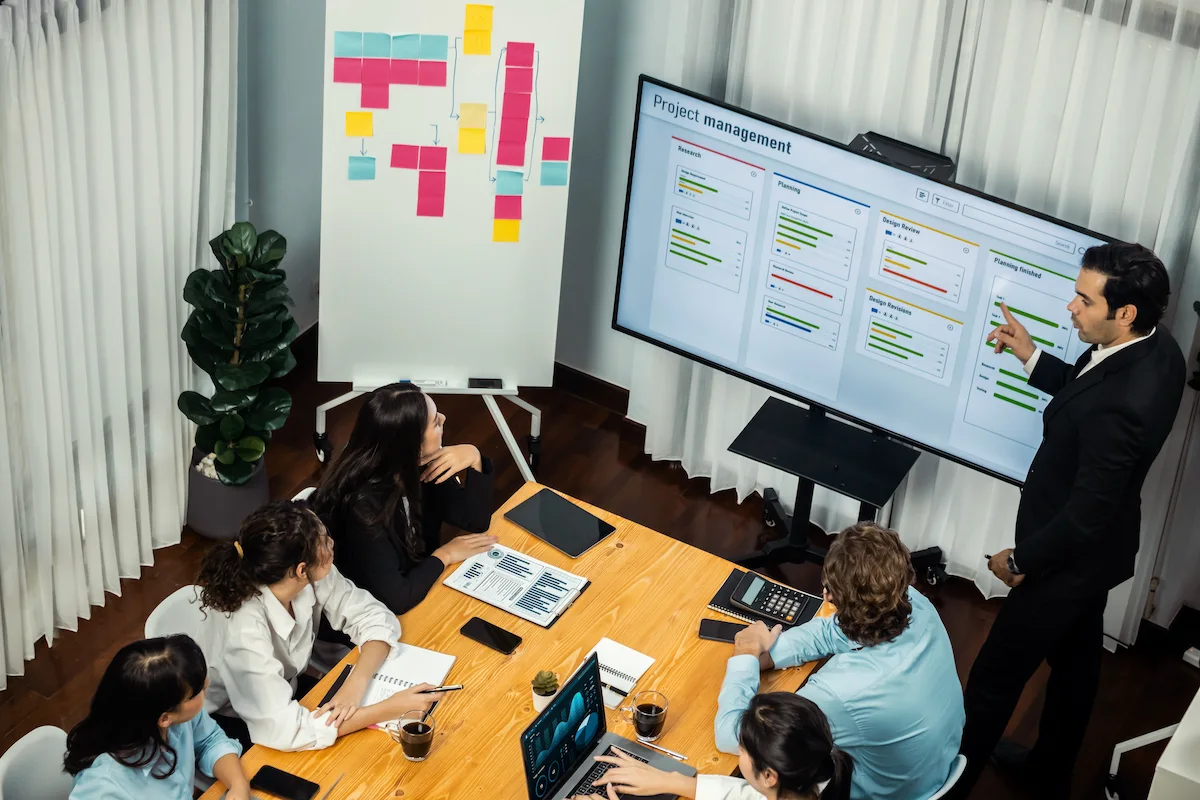For foreign engineers working in Japanese IT companies, adapting to cultural differences beyond technical skills presents a significant challenge.
In particular, there are uniquely Japanese characteristics in communication styles, decision-making processes, and team development approaches.
This article explains everything from basic knowledge to practical advice that you should know to succeed in Japanese IT companies, with specific examples.
- Japanese IT workplace communication norms.
- Effective collaboration with Japanese engineering teams.
- Career advancement strategies in Japanese companies.
1. Basic Knowledge Before Working in Japanese IT Companies

When working in Japanese IT companies, understanding the unique corporate culture and work styles is important in addition to technical skills.
Many foreign engineers feel confused by cultural differences during their first few months, but acquiring basic knowledge can enable smooth workplace adaptation.
Here, we will explain in detail the particularly important basic knowledge for working in Japanese IT companies.
Distinctive Work Styles in Japanese IT Companies
Japanese IT companies have unique work styles that differ from global standards.
The most characteristic is a culture that emphasizes “teams” Team achievements are valued more than individual achievements, and close cooperation between members is required.
In typical companies, morning stand-up meetings are a daily routine, with frequent progress reports and information sharing.
Another characteristic is the emphasis on mutual reviews within the team and the expectation to accommodate flexible working hours, including overtime.
Communication Style Expected of Engineers
In Japanese companies, communication skills are valued as much as or more than technical skills. In particular, thorough “reporting, communication, and consultation (Ho-Ren-So)” is required.
Key Points of Reporting, Communication, and Consultation
- Regular reporting of progress status
- Prompt communication when problems occur
- Prior consultation before important decisions
It’s also important to understand and use uniquely Japanese ambiguous expressions.
For example, it’s good to understand that the phrase “I will consider it” may include a negative response, and “It might be difficult” often means nearly impossible.
Uniquely Japanese Approaches to Team Development
Japanese IT companies’ development processes have distinctive characteristics.
- Detailed specifications and documentation are highly emphasized
- Strong commitment to quality control with frequent review meetings
- Decision-making is consensus-based, with importance placed on obtaining agreement from all team members
These approaches reflect Japanese corporate culture, which prioritizes quality and stability over development speed.
2. Uniquely Japanese Customs in IT Workplaces and How to Handle Them

In Japanese IT workplaces, you may face various unique customs and practices beyond technical skills.
These customs are deeply rooted in Japanese corporate culture formed over many years and can sometimes be difficult for foreign engineers to understand.
However, they often contain important meanings that improve team productivity and quality.
By understanding and appropriately responding to Japanese customs, you may be able to work more effectively.
How to Behave in Morning and Regular Meetings
Japanese meeting culture has unique rules.
Punctuality
Punctuality is extremely important, and arriving 5 minutes early is recommended
Preparation for meetings
Preparing and distributing materials in advance is expected, and timing your comments appropriately is required
Speaking in meetings
Consideration for senior members’ comments is particularly important, and when expressing opinions, it’s desirable to listen fully to others’ comments first.
How to Communicate Technical Proposals and Improvements
When making improvement proposals, it’s important to start by acknowledging the good points of the current situation. Then, support your proposal with specific data and examples, and present a gradual improvement plan.
Emphasizing the benefits your proposal brings to the entire team makes it more likely to be accepted. Rather than making one-sided proposals, it’s preferable to proceed through dialogue, incorporating others’ opinions.
Importance and Practical Methods of Reporting, Communication, and Consultation
For practicing Ho-Ren-So, conveying concise and to-the-point content is important.
Regular status updates are required, and when there are issues, reporting them along with solution proposals is expected.
The timing of reports is also important, with early-stage reporting before problems grow larger being recommended. This practice is recognized as an essential element for smooth operation of the entire team.
■日本でエンジニアとしてキャリアアップしたい方へ
海外エンジニア転職支援サービス『 Bloomtech Career 』にご相談ください。「英語OK」「ビザサポートあり」「高年収企業」など、外国人エンジニア向けの求人を多数掲載。専任のキャリアアドバイザーが、あなたのスキル・希望に合った最適な日本企業をご紹介します。
▼簡単・無料!30秒で登録完了!まずはお気軽にご連絡ください!
Bloomtech Careerに無料相談してみる
3. Key Points for Effective Collaboration with Japanese Engineers

To collaborate effectively with Japanese engineers, acquiring cultural understanding and appropriate communication methods is essential, not just technical skills.
Understanding collective decision-making processes and indirect expression methods is particularly important.
Constructive Feedback Methods in Code Reviews
In Japanese-style code reviews, it’s common to avoid direct criticism and provide feedback in question format.
For example, instead of direct expressions like “This code is wrong,” use more indirect expressions such as “This part might be implemented in a different way.”
Also, it’s important to always mention positive points and present specific alternatives when pointing out areas for improvement.
This allows for improving code quality while maintaining team members’ motivation.
How to Express Opinions and Build Consensus Within Teams
In Japanese development teams, preliminary groundwork is highly valued.
Conduct groundwork before making important proposals
By consulting individually with stakeholders in advance and collecting opinions, smooth consensus-building becomes possible
When expressing opinions, it’s effective to make proposals based on specific data and examples and show a gradual approach. Clearly demonstrating benefits for the entire team makes proposals more likely to be accepted.
Japanese-Specific Considerations in Technical Discussions
In technical discussions, it’s important to avoid direct negation and present constructive alternatives. Show consideration for implementation costs and maintainability while emphasizing the team’s review process.
Proposals that consider not only technical correctness but also the team’s development style and consistency with existing systems are required.
4. Practical Guide for Smooth Living in Japan

To live smoothly in Japan, it’s important to understand and appropriately respond to Japan’s unique customs and rules not only in the workplace but also in daily life. Adaptation is required in various aspects such as housing, commuting, and personal relationships.
Tips for Choosing and Contracting Housing Near IT Companies
When choosing housing, you need to prioritize commuting time and route.
Especially in areas where IT companies are concentrated, rent tends to be expensive, but it’s important to balance this with commuting convenience.
When signing a contract, advance preparation is necessary, such as additional documents required for foreigners and arranging guarantors.
Also, in areas where many IT companies are concentrated, rental properties for foreigners are increasing, and these properties often offer comprehensive language support.
Commuting Etiquette and Effective Use of Remote Work
In Japanese commuting culture, utilizing staggered commuting hours is recommended. We recommend checking with your company whether it’s possible to commute outside peak hours.
Regarding remote work
It’s important to understand Japan-specific rules such as online meeting etiquette and work hours management. Efficient work methods are required while maintaining appropriate reporting, communication, and consultation.
How to Handle After-Hours Socializing and Build Relationships
In Japanese workplaces, after-hours socializing is also an important element in building relationships.
Participation in company events is not mandatory, but moderate participation can deepen relationships with the team.
However, it’s necessary to clearly set boundaries between private and work life and be careful not to disrupt your own lifestyle and work-life balance.
■日本でエンジニアとしてキャリアアップしたい方へ
海外エンジニア転職支援サービス『 Bloomtech Career 』にご相談ください。「英語OK」「ビザサポートあり」「高年収企業」など、外国人エンジニア向けの求人を多数掲載。専任のキャリアアドバイザーが、あなたのスキル・希望に合った最適な日本企業をご紹介します。
▼簡単・無料!30秒で登録完了!まずはお気軽にご連絡ください!
Bloomtech Careerに無料相談してみる
5. How to Utilize Japanese Corporate Culture for Career Development

For career development in Japanese companies, it’s important to understand and effectively utilize the unique evaluation systems and promotion mechanisms.
The keys to success are long-term career planning and adaptation to Japanese corporate culture.
Understanding Skill Development and Evaluation Systems
In Japanese companies’ evaluation systems, not only technical skills but also contribution to the team and cooperation are important elements.
In regular evaluation interviews, you can have frank discussions with supervisors about current challenges and future goals.
Many Japanese IT companies also have comprehensive internal training programs and qualification support systems, which you can actively utilize for skill development.
Visualizing technical skills is also important, and it’s recommended to clarify your skill set by referring to technology maps used within the company.
Uniquely Japanese Mechanisms in Promotion and Salary Increases
Elements of seniority-based systems still remain in Japanese companies’ promotion and salary increase systems.
However, in recent IT companies, merit-based evaluations are also being incorporated, with treatments based on technical ability and results increasing.
Understanding the evaluation system and grasping promotion requirements enables effective career advancement.
It’s necessary to recognize that not only technical skills but also project management and team leadership skills are subject to evaluation.
How to Create Long-Term Career Plans
For career formation in Japanese companies, a long-term perspective is important. By clarifying the direction of your future career and establishing specific action plans toward it, more fulfilling career development becomes possible.
Tips for Long-Term Career Planning
- Create a roadmap of technical skills and plan systematic skill development
- Be conscious of strengthening business skills in addition to pure technical skills
- Consider improving Japanese communication ability and acquiring business manners as important elements for career advancement
- Build networks inside and outside the company and expand career possibilities through participation in technical communities and interaction with different departments within the company
6. Understanding Lifestyle Differences to Work in Japan as a Foreign Engineer
To succeed in Japanese IT companies, cultural understanding and adaptation are essential, not just improving technical skills.
By understanding and practicing the uniquely Japanese work styles and customs introduced in this article, smoother workplace adaptation becomes possible.
This knowledge can be utilized not only for adaptation but also as a unique strength combining global perspectives and Japanese corporate culture for long-term career development.

















